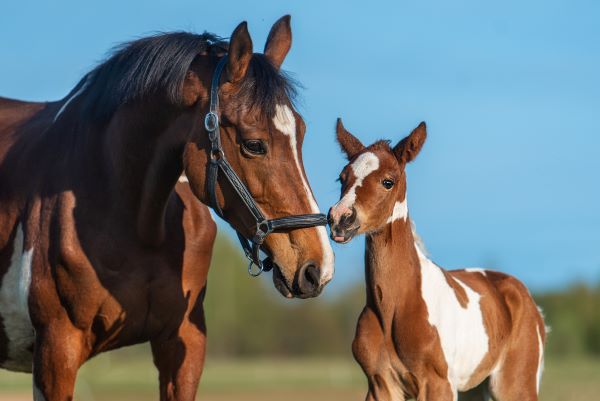New Test Available: Equine Juvenile Spinocerebellar Ataxia (EJSCA)
Equine Juvenile Spinocerebellar Ataxia (EJSCA) is an inherited neurologic disease that causes ataxia in American Quarter Horses. The variant causing this disease was identified at UC Davis by Dr. Carrie Finno, Gregory L. Ferraro Endowed Director of the UC Davis Center for Equine Health (CEH), and colleagues, and the scientific paper describing this finding is currently in progress.
Dr. Finno found that affected foals developed ataxia, or incoordination, between 1 and 4 weeks of age. In most affected foals, the hind limbs appeared to be more severely affected than the front limbs. As the disease progressed, these foals would turn the hind limbs to one side, with the front limbs planted on the ground, causing them to appear to walk sideways. Within a few days, the affected foals were unable to stand without assistance and had to be euthanized.
The disease is inherited as an autosomal recessive trait and genetic testing can determine whether a horse is a carrier of the causative variant. Breeding of two carrier animals has a 25% chance of producing an affected foal.
To read more about the test, visit:
https://vgl.ucdavis.edu/test/equine-juvenile-spinocerebellar-ataxia-ejsca











